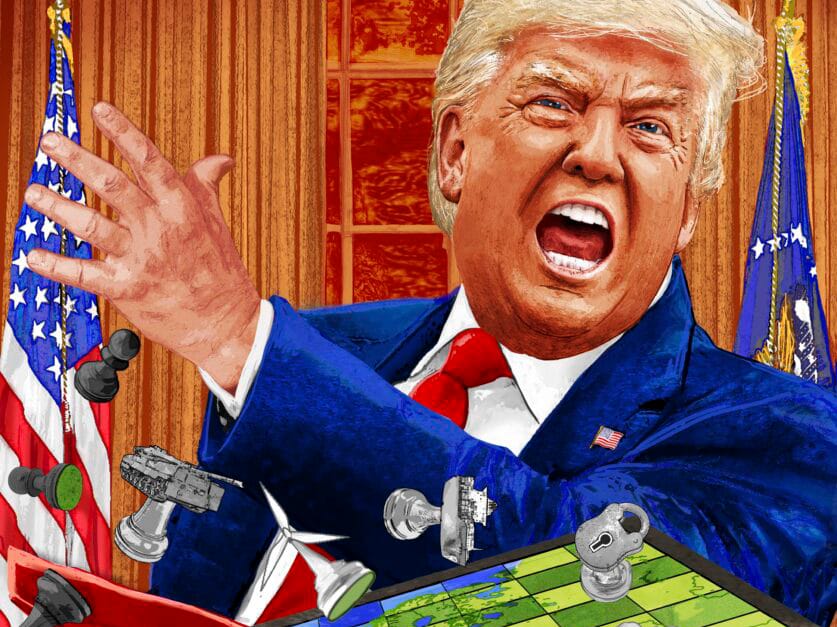The former president’s return would cement a shift in the U.S. as a fact that can no longer be ignored.
This is the moment most of Europe’s leaders hoped they would never see. The date is November 7, 2024, two days after Donald Trump edged out Joe Biden in the U.S. presidential election, and already the once-and-future president has announced he will force Ukraine to strike a peace deal with Russia and cede territories the Kremlin has claimed as its own.
Gathered in Budapest for a meeting of the European Political Community, the continent’s leaders stare out over the majestic Danube River with just one thing on their mind: How should they react?
Can they double down in the face of Trump’s opposition and finally give Kyiv whatever it takes, as a group of leaders clustered around Ukrainian President Volodymyr Zelenskyy and French President Emmanuel Macron are arguing? Should they follow Hungarian Prime Minister Viktor Orbán’s lead and welcome Trump’s initiative to bring the conflict to an end? Wouldn’t it be better to work with Washington and help shape the deal, as the German and Italian delegations keep saying? And most importantly, how can the continent’s leaders keep the sharp turn in U.S. foreign policy from driving their countries apart?
Trump’s return to the White House is no sure thing, but the possibility is forcing Europe’s leaders to ponder scenarios like this, and grapple with the questions they entail. And as the U.S. election cycle cranks into a higher gear, officials across the continent are becoming increasingly candid about the implications of a second Trump presidency.



I upvoted your comment, because I like the underlying idea that Europe has been “protected” so far because they could not sustain themselves, which is absolutely true. But the previous order collapsing isn’t necessarily bad.